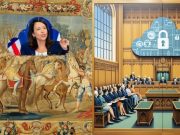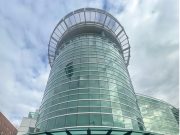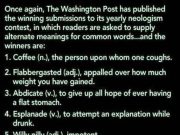By Mike Apgar, CEO, Ookla
The FCC recently announced that it is looking for 10,000 volunteers to help conduct an expensive home broadband performance study for its SamKnows program. Yet very similar data is already freely available to the FCC. If you’re familiar with Ookla’s Speedtest.net or Pingtest.net, you know that more than a billion tests have already been recorded, with at least a million more added to that data set each day. However, even though data from this expansive resource is already in the FCC’s hands, it has inexplicably chosen to move forward with the taxpayer funded SamKnows program.
Despite the fact that the FCC already utilizes Ookla solutions, both to offer free testing and as a data resource, detractors have recently suggested that this data is “unscientific” because of the “self-selected” nature of the participants and, therefore, largely useless for policy makers. Yet this same data set is already in use by other government agencies, universities, and research institutions, which to date have found it invaluable. The questions regarding the validity of the data is of particular interest because of the limited and restrictive, not to mention “self-selected”, sample set that SamKnows will collect.
Unfortunately, many people are confused and frustrated about the process of broadband measurement, but when largely speculative technical confusion bleeds into and muddies the conversation around the National Broadband Plan, it is time to step back and take a moment to clarify and address the facts.
It is clear it will take more than one study or data resource to gain a thorough understanding of the state of residential broadband service in the U.S. It is easy to find limitations or problems involved with any one method without recognizing that many of these issues can be largely mitigated or eliminated while still deriving valuable data.
Consider the idea of measuring the connection of 10,000 Americans – just 200 people in each state, on average – and using that data to shape broadband policies. These participants will volunteer, and must meet certain requirements and agree to have a third party and foreign-based company install a mysterious measurement device on their home network. Somehow, some think this is more scientific than the data Ookla collects.
The device is also able to monitor everything the volunteer does on the Internet, which will surely impact behavior, and the resulting data, by creating a segmented demographic and psychographic profile of willing participants, not a broad representation of the Internet as a whole. This is self-selection at play in an even more pronounced way than at Speedtest.net.
In order to participate, volunteers will be required to meet certain criteria, which will yet again eliminate groups of key users. For example, one requirement is that you must not be a heavy user, which is quantified as downloading more than 30 GB of traffic per month. Experience dictates that it is precisely these heavy users that compound the challenges of any broadband ISP’s network management — just ask operators at any major carrier. It is precisely the behavior of these people that should be a primary goal in determining whether the infrastructure, packages and policies are geared toward a workable future.
Additionally, the study is expected to last for 25 months, and if a volunteer plans to move or change service providers in that time, they are undesirable for the study. This, again, eliminates a large subset of users, namely in the younger and more mobile demographic, who can also be the most forward-thinking and heaviest users of broadband and a key audience for any improvements stemming from the FCC’s efforts.
These issues are just a few of many pointing towards a revision to the FCC’s SamKnows plan; a number of other arguments can be found in a recently released response paper. Ookla believes that the FCC should reconsider relying on the SamKnows program and instead incorporate and consider all available data. While there is no doubt of the importance of understanding and classifying national broadband information, there is a reason that a broad range of experts – from analysts to researchers to business leaders and policy makers – rely on data that is already widely available and free to the FCC. [24×7]

Mike Apgar is the CEO of Ookla.
Ookla is the global leader in broadband speed testing and web-based network diagnostic applications.
The company’s test engines and methodologies set the broadband industry’s standards for popularity, ease of use and the subsequent development of relevant statistical data. Through application development and licensing, Ookla services almost every Internet Service Provider in the world, and its solutions have been translated into 26 languages for use by thousands of small businesses and Fortune 500 companies such as Cisco, Comcast, AT&T, Reuters, ESPN, CNN and Disney.
Over two million people a day use Ookla’s numerous free diagnostic tools including Speedtest.net, the leader in measuring broadband connection speed.
Ookla is especially thrilled to be the exclusive provider of mobile broadband applications for the FCC Broadband.gov initiative described above. Since launching our own mobile testing applications on the iPhone and Android platforms last year the company has compiled over 40 Million test results and are adding over 125,000 new results to its database every day.
Founded by Internet and telecommunications veterans in 2006, Ookla has offices in Seattle, WA and Kalispell, MT. You can follow the company on Twitter @TeamOokla




















